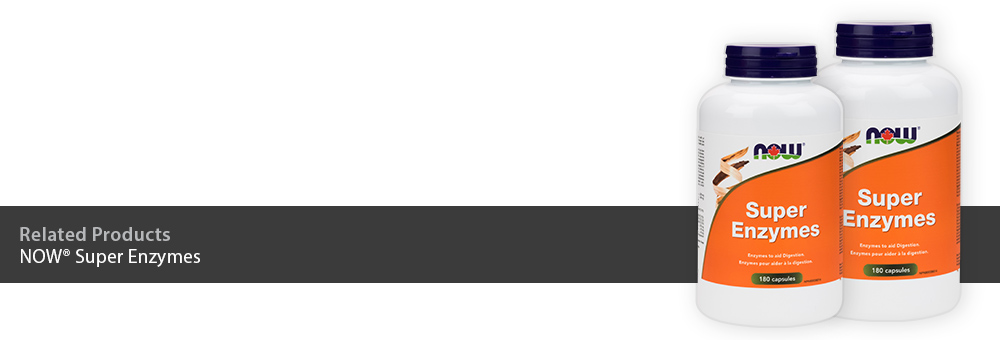

Singing the Praises of Medicinal Mushrooms
Medicinal Mushrooms are all the rage right now. In fact, people are purchasing mushrooms in record numbers recently for everything from enhancing the stress response, to strengthening the immune system and improving athletic performance. But how do you decipher hype from reality? Health food fads come and go of course, and while some ingredients have solid, factual research supporting their mode of action, as well as their benefits to health, others are more loosely based on anecdotal data. Fortunately, Medicinal Mushrooms belong to the former group. Indeed, Medicinal Mushrooms have a wealth of solid supportive scientific research behind them that has clearly shown they offer a variety of therapeutic benefits, primarily around bolstering the body’s stress response, strengthening immunity via immune modulation, as well as helping to increase energy. Let’s explore these little gems of nature in more detail.
A Brief Overview of Medicinal Fungi
The medicinal use of Mushrooms has a well-established history in Traditional Chinese Medicine that dates back thousands of years. Although relatively newer to our neck of the woods, Medicinal Mushrooms have been studied extensively, and science has identified unique bioactive compounds in a variety of fungi species, each offering their own distinct benefits to health.
One of the key scientifically-validated advantages of Medicinal Mushrooms is that they are among the most effective adaptogens on the market today. In a nutshell, adaptogens are substances that support the body’s natural ability to deal with stress.1, 2, 3 Adaptogens in fact, have the unique ability to “adapt” their functions according to the specific needs of the body on any given day. As an illustration, adaptogens are often described as thermostats. So, for instance, if you need a little stimulation one day, that is what they will give you. If the next day, you need a little relaxation, that is precisely what you will get. Health Canada, in fact, tells us that certain varieties of mushrooms have long been used in Herbal Medicine as potent adaptogens to help increase energy and bolster resistance to stress. A considerable advantage in the current pandemic context! Medicinal mushrooms also have powerful immunomodulating properties and so, can be used to help support our immune system.4
Choosing the Medicinal Mushroom Blend
Of course, as in all things, medicinal mushrooms are not all created equal. Mushrooms cells in fact, are composed of chitin; a fibrous substance that is functionally very comparable to keratin (the key structural material making up scales, hair, nails, feathers, horns, claws, hooves, calluses, and the outer layer of skin among vertebrates). In turn, a mushroom’s bioactive compounds are all locked-into these hard-to-digest chitin-cell walls. Unfortunately, humans cannot digest chitin properly, because the enzyme chitinase that is needed to break down chitin, is poorly if at all active in stomach acid. So, for those interested in trying out Medicinal Mushrooms, it’s important to select a blend that has the addition of DIGESTIVE ENZYMES, so your body can actually digest the mushrooms and unlock the therapeutic benefits it offers!
Another Key Consideration
Science has shown that each part of the mushroom has its own distinct composition and offers its own unique medicinal properties. Indeed, research tells us that the mycelium, an essential part of the life support system for mushrooms, is rich in complex polysaccharides, polyphenols, vitamins, minerals, prebiotics and digestive enzymes, and is absolutely essential to triggering immune function. The fruiting body, meanwhile, is particularly rich in beta-glucans, special polysaccharides found in the cell walls of mushrooms and yeasts such as Saccharomyces Cerevisiae.5, 6, 7, 8, 9, 10 Glucans are part of a group of bioactive compounds with potent scientifically demonstrated immune modulating properties. As such, formulas that feature the entire mushroom provide Full-Spectrum, Whole Food Benefits and offer a wide range of benefits to health. So, when selecting your Mushroom blend, pay attention to the label to make sure you are getting the formula that best meets your own distinct needs (ie: strengthening the immune response, stress support, boosting energy, or a combination of these).
New Progressive Mushroom Lineup
Progressive recently launched 3 brand new Mushroom blends for everyday Stress and Immune support. The formulas all feature whole-food mushroom powders from Canadian mushrooms – grown exclusively on organic, gluten-free oats. Progressive Mushroom formulas also all have the addition of digestive enzymes, so you can fully benefit from all of the medicinal benefits each blend offers! And, as an added bonus, and complete peace of mind, all three Progressive Mushroom blends are TRU-ID® certified to guarantee the authenticity and potency of the ingredients listed on the label.
Isn’t it time you too discovered Medicinal Mushrooms? Which blend is right for you?
References:
1. Sissi Wachtel-Galor, John Yuen, John A. Buswell, and Iris F. F. Benzie. Herbal Medicine: Biomolecular and Clinical Aspects. 2nd edition. Chapter 9 Ganoderma lucidum (Lingzhi or Reishi). https://www.ncbi.nlm.nih.gov/books/NBK92757/
2. Katie M Love, Rebecca E Barnett, Ian Holbrook, Gerald Sonnenfeld, Hajime Fujii, Buxiang Sun, James C Peyton, William G Cheadle. A natural immune modulator attenuates stress hormone and catecholamine concentrations in polymicrobial peritonitis. J Trauma Acute Care Surg. 2013 Jun;74(6):1411-8. doi: 10.1097/TA.0b013e31829215b1
3. Muszyńska, B., Grzywacz-Kisielewska, A., Kała, K., & Gdula-Argasińska, J. (2018). Anti-inflammatory properties of edible mushrooms: A review. Food Chemistry, 243, 373–381. https://doi.org/10.1016/j.foodchem.2017.09.149
4. Health Canada. Mushrooms Monograph. Accessed May 25, 2020 at: http://webprod.hc-sc.gc.ca/nhpid-bdipsn/atReq.do?atid=mushrooms.champignons&lang=eng
5. Muszyńska, B., Grzywacz-Kisielewska, A., Kała, K., & Gdula-Argasińska, J. (2018). Anti-inflammatory properties of edible mushrooms: A review. Food Chemistry, 243, 373–381. https://doi.org/10.1016/j.foodchem.2017.09.149
6. Sandrina A. Heleno, Lillian Barros, Anabela Martins, Maria João, R.P. Queiroz, Celestino Santos-Buelga, Isabel C.F.R.Ferreira. Fruiting body, spores and in vitro produced mycelium of Ganoderma lucidum from Northeast Portugal: A comparative study of the antioxidant potential of phenolic and polysaccharidic extracts. Food Research International, Volume 46, Issue 1, April 2012, Pages 135-14. doi.org/10.1016/j.foodres.2011.12.009
7. Muszyńska, B., Grzywacz-Kisielewska, A., Kała, K., & Gdula-Argasińska, J. (2018). Anti-inflammatory properties of edible mushrooms: A review. Food Chemistry, 243, 373–381. https://doi.org/10.1016/j.foodchem.2017.09.149
8. Koh J. H, Yu K. W, Suh H. J, Choi Y. M, Ahn T. S. Activation of macrophages and the intestinal immune system by an orally administered decoction from cultured mycelia of Cordyceps sinensis. BiosciBiotechnol Biochem. 2002;66:407–11.
9. Sissi Wachtel-Galor, John Yuen, John A. Buswell, and Iris F. F. Benzie. Herbal Medicine: Biomolecular and Clinical Aspects. 2nd edition. Chapter 9 Ganoderma lucidum (Lingzhi or Reishi). https://www.ncbi.nlm.nih.gov/books/NBK92757/
10. Katie M Love, Rebecca E Barnett, Ian Holbrook, Gerald Sonnenfeld, Hajime Fujii, Buxiang Sun, James C Peyton, William G Cheadle. A natural immune modulator attenuates stress hormone and catecholamine concentrations in polymicrobial peritonitis. J Trauma Acute Care Surg. 2013 Jun;74(6):1411-8. doi: 10.1097/TA.0b013e31829215b1

